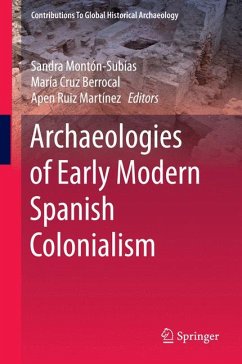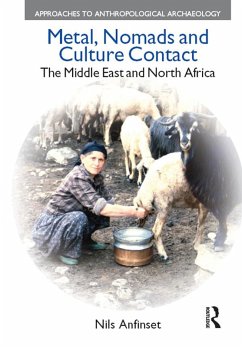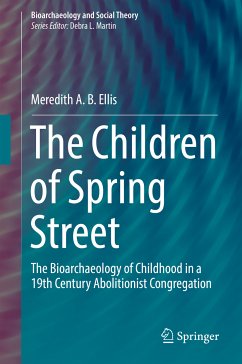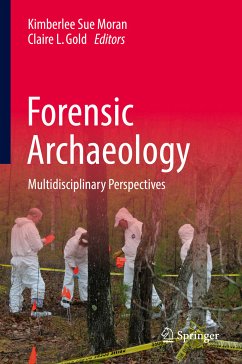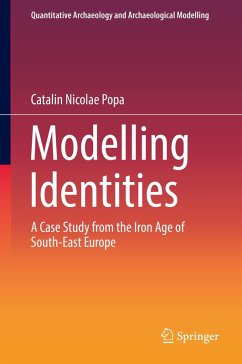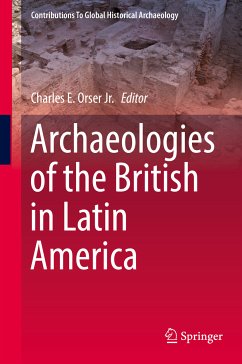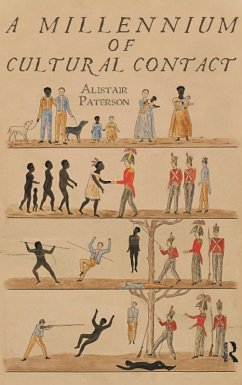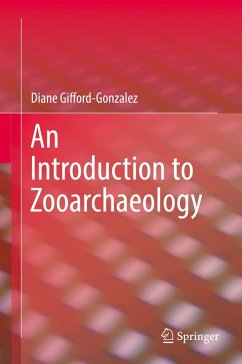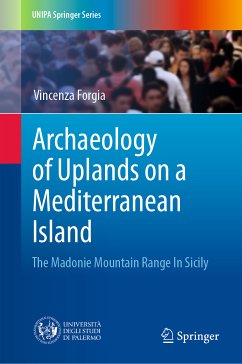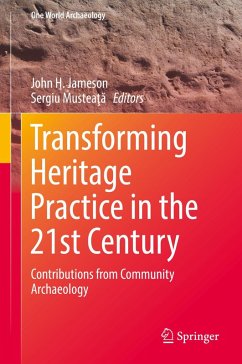
Archaeology of Culture Contact and Colonialism in Spanish and Portuguese America (eBook, PDF)
Versandkostenfrei!
Sofort per Download lieferbar
72,95 €
inkl. MwSt.
Weitere Ausgaben:

PAYBACK Punkte
36 °P sammeln!
The volume contributes to disrupt the old grand narrative of cultural contact and colonialism in Spanish and Portuguese America in a wide and complete sense. This edited volume aims at exploring contact archaeology in the modern era. Archaeology has been exploring the interaction of peoples and cultures from early times, but only in the last few decades have cultural contact and material world been recognized as crucial elements to understanding colonialism and the emergence of modernity. Modern colonialism studies pose questions in need of broader answers. This volume explores these answers i...
The volume contributes to disrupt the old grand narrative of cultural contact and colonialism in Spanish and Portuguese America in a wide and complete sense. This edited volume aims at exploring contact archaeology in the modern era. Archaeology has been exploring the interaction of peoples and cultures from early times, but only in the last few decades have cultural contact and material world been recognized as crucial elements to understanding colonialism and the emergence of modernity. Modern colonialism studies pose questions in need of broader answers. This volume explores these answers in Spanish and Portuguese America, comprising present-day Latin America and formerly Spanish territories now part of the United States. The volume addresses studies of the particular features of Spanish-Portuguese colonialism, as well as the specificities of Iberian colonization, including hybridism, religious novelties, medieval and modern social features, all mixed in a variety of ways unique and so different from other areas, particularly the Anglo-Saxon colonial thrust. Cultural contact studies offer a particularly in-depth picture of the uniqueness of Latin America in terms of its cultural mixture. This volume particularly highlights local histories, revealing novelty, diversity, and creativity in the conformation of the new colonial realities, as well as presenting Latin America as a multicultural arena, with astonishing heterogeneity in thoughts, experiences, practices, and, material worlds.
Dieser Download kann aus rechtlichen Gründen nur mit Rechnungsadresse in A, B, BG, CY, CZ, D, DK, EW, E, FIN, F, GR, HR, H, IRL, I, LT, L, LR, M, NL, PL, P, R, S, SLO, SK ausgeliefert werden.




